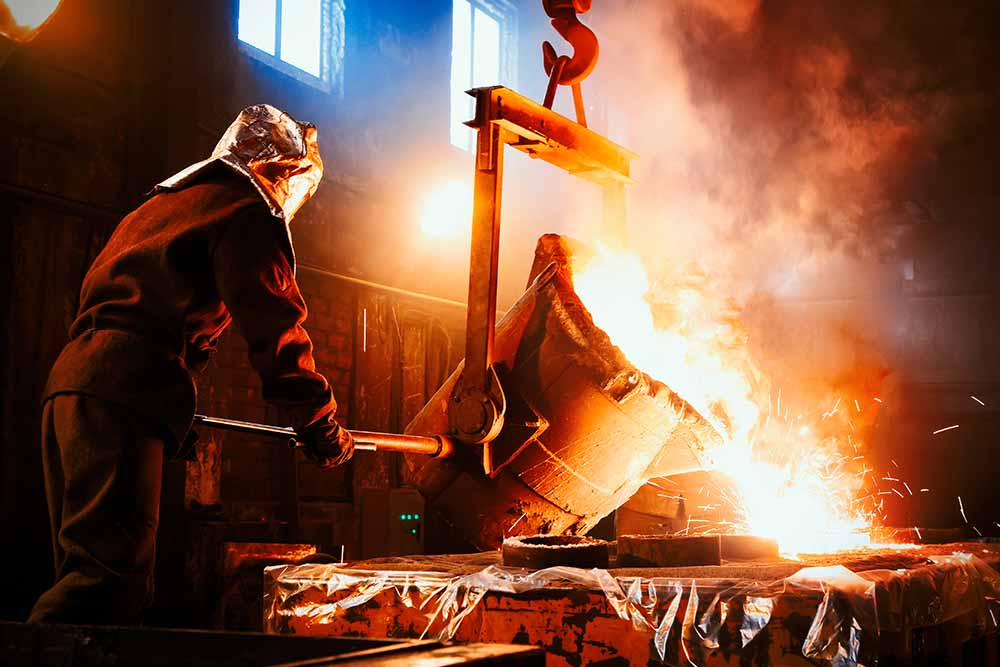Casting in Manufacturing - Level 3
Overview
Castings are solid metal items that are produced through a manufacturing process. A mould is filled with molten metal. The metal cools and solidifies in the shape of the mould cavity once it is in the mould. Casting allows us a great deal of flexibility when it comes to producing complicated components, examples include epoxy, concrete, plaster and clay.
There are four kinds of casting:
- Die-casting
- Investment casting
- Plaster casting
- Sand casting
The main objective of this course is to make you understand the casting process in greater detail. The traditional casting (sand casting) is the primary focus of the course, however, current casting processes such as die casting, centrifugal casting and investment casting will be explored as well.
Why you should consider taking this course at Study365
Study 365 is a leading online education provider for several accredited organisations. It provides learners the opportunity to take this Casting in Manufacturing – Level 3 course at their own pace. At Study365, we give our fullest attention to the learners’ needs and ensure they have the necessary information required to proceed with the training effectively.
We disseminate the latest knowledge and facilitate learners with everything required to confirm a top-notch position in the industry. We vouch for our learners an exclusive learning experience by paying close attention to their unique requirements and coming up with solutions every time. We provide them with state-of-the-art facilities using the latest technology.
Here are some unique benefits of studying through Study365:
- Informative and secure
- Expert tutor support
- Learn at your own pace
- Versatile and motivated learning
- A culture of continuous improvement
- About the Tutor
- Learning outcomes
- Whom is this qualification for?
- Prerequisites to take the course
- Method of assessment
- Certification
- Awarding body
- Career path and progression

With over 8 years of industrial experience, J Aatish Rao is a dynamic mechanical engineering specialist. He conducting workshops and engaging in instructional activities. Certified to teach a variety of software, scientific, and engineering courses. He is Autodesk Certified Professional, Autodesk Fusion Certified User, Clear Fit Certified team Leader, Industrial consultant, and stargazer.
- Learn about the traditional casting process (sand casting) in-depth
- Understand different types of patterns and moulds
- Learn all about the Gating system
- Understand and apply the modern casting methods
- Mechanical engineers (graduates and undergraduates)
- Manufacturing engineers (graduates and undergraduates)
- Students and enthusiasts having interest in the subject
- A rough idea of material science and a little high school chemistry (although everything is explained in the course)
This is a knowledge-based course, and thus, will contain no method of assessment.
Upon the successful completion of the course, learners will be awarded an accredited Certificate of Completion for Casting in Manufacturing - Level 3 by iAP.
The International Awards for Professionals (iAP) is an awarding body established in 1999 that aims to promote a high educational standard. It hopes to create online education that is trustworthy and credible. It is focused on raising the standards of online education, and ensuring it is accessible to all. The iAP provides accreditation for a range of educational establishments, and monitors and continually develops the educational standards of such institutions. Its globally recognised certifications allow learners to acquire the skills and knowledge needed to gain employment in the chosen fields anywhere in the world.
Upon successfully completing this course, learners will have the knowledge and skills to enter the relevant job market with the confidence to explore a wide range of industry-related jobs. You can further study related courses that will open new and existing doors which will pave the way to exciting opportunities. Adding this as a skill set on your resume is beneficial to raise your value. Top employers and organisations will recognise your skills that will enable you to land a generously-paying job. Given below are job titles you can compete for:
- General manager - Casting foundry
- Manufacturing engineer
Course Curriculum
| 1. Introduction | |||
| 1.1. Scope of the Course | FREE | 00:02:00 | |
| 1.2. What is Casting? | FREE | 00:06:00 | |
| 2. Pattern and Mould | |||
| 2.1. Types of Pattern Material | 00:09:00 | ||
| 2.2. Pattern Allowances | 00:09:00 | ||
| 2.3. Types of Pattern | 00:03:00 | ||
| 2.4. Types of Sand Mould | 00:07:00 | ||
| 2.5. Binders | 00:04:00 | ||
| 2.6. Additives | 00:04:00 | ||
| 2.7. Properties of Moulding Sand | 00:09:00 | ||
| 2.8. Methods of Mould Making | 00:03:00 | ||
| 3. Gating System | |||
| 3.1. Elements of Gating System | 00:08:00 | ||
| 3.2. Accessories of Gating System | 00:02:00 | ||
| 3.3. Characteristics of Gating System | 00:04:00 | ||
| 3.4. Gating Ratio | 00:02:00 | ||
| 3.5. Types of Gating System | 00:11:00 | ||
| 3.6. The Aspiration Effect | 00:07:00 | ||
| 3.7. Cores | 00:05:00 | ||
| 3.8. Chaplets | 00:05:00 | ||
| 3.9. Solidification Time | 00:03:00 | ||
| 3.10. Location of Riser | 00:09:00 | ||
| 3.11. Methods for Designing a Riser | 00:05:00 | ||
| 3.12. Chills | 00:02:00 | ||
| 4. Modern Casting Methods | |||
| 4.1. Why There is a Need for Modern Casting Techniques? | 00:04:00 | ||
| 4.2. Shell Moulding | 00:04:00 | ||
| 4.3. Slush Casting | 00:02:00 | ||
| 4.4. Investment Casting | 00:05:00 | ||
| 4.5. Die Casting Method | 00:03:00 | ||
| 4.6. Centrifugal Casting | 00:02:00 | ||
| 5. Miscellaneous | |||
| 5.1. Grain Behavior in Casting | 00:02:00 | ||
| 5.2. Types of Casting Defects | 00:05:00 | ||
| Completion Certificate Request | |||
| Completion Certificate Request | |||






No Reviews found for this course.